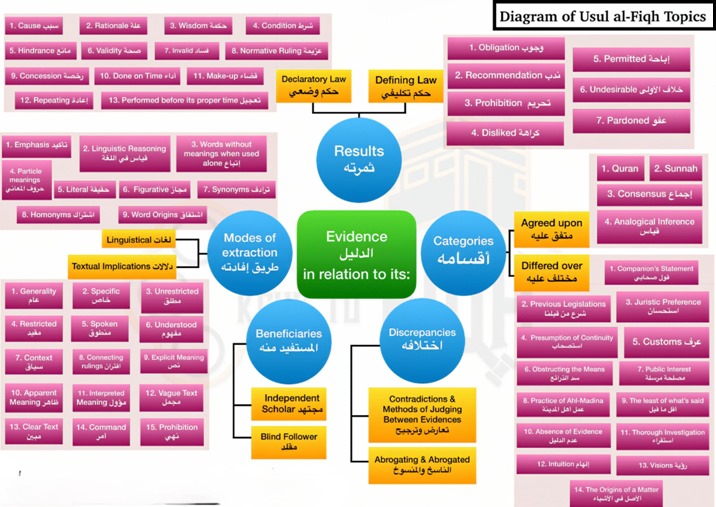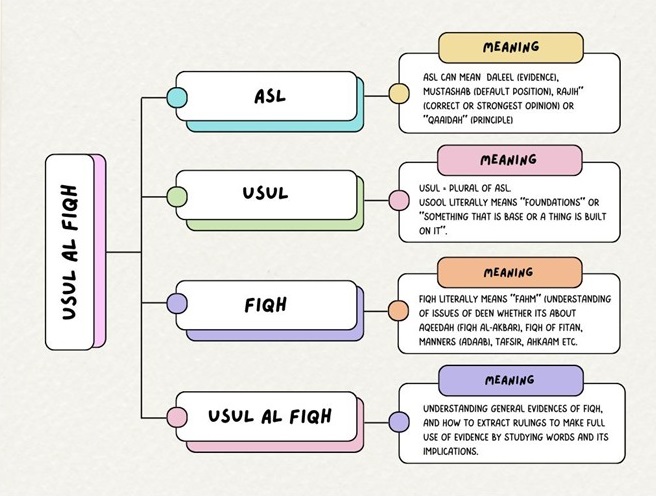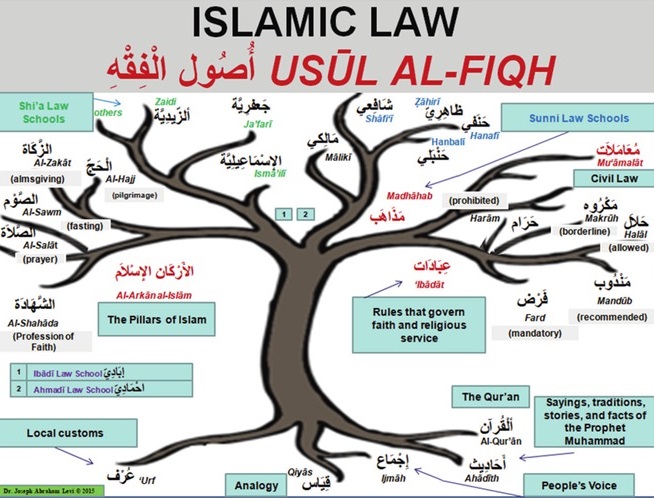
About the Course
This course is a study of the theory of Muslim law – based on a book text on the subject. The text chosen is Al-Wajeez Fi Usul Al-Figh by Abdul Karim Zaidan. Islamic Jurisprudence is concerned with the way in which the rituals and the laws of religion are derived from the Qur`an and the Sunnah-the precedent of the Prophet. Revelation, which is given to man to restore unity and help him achieve a just and devout order in society as well as in the soul.

Introduction
Usul-ul-Fiqh, or the principles of Islamic jurisprudence, is a foundational subject that equips students with the methodologies for deriving legal rulings from Islamic sources. This course offers an in-depth exploration of the principles that govern the interpretation and application of Shari'ah, fostering a deeper understanding of Islamic law and its relevance in contemporary society.
Course Contents
This comprehensive course is designed to provide an in-depth understanding of Islamic history, principles, and teachings with a focus on the Makki and Madni eras. This course aims to enrich the knowledge of students about the life of Prophet Muhammad (PBUH), the Quranic revelations, and the development of the early Muslim community.
Introduction

-
Introduction to Usul-ul-Fiqh
- Definition and significance
- Definition and significance
-
Sources of Islamic Law
- Qur'an: Understanding its authority
- Sunnah: The role of the Prophet's teachings
- Consensus (Ijma) and Analogy (Qiyas)
-
Key Concepts in Usul-ul-Fiqh
- The lawgiver (Al-Haakim)
- Subject of law (Al-Mahkum Fih)
- Legal rulings (Al-Hukm Al-Shar'i)
-
Types of Legal Rules
- Primary rules (Al-Hukm Al-Taklifi)
- Secondary rules (Al-Hukm Al-Wadh'ei)
-
Principles of Ijtihad (Juristic Reasoning)
- Methodologies of interpretation
- Role of jurists (Mujtahid)
-
Comparative Analysis
- Islamic vs. Western jurisprudence
- Applications of Usul-ul-Fiqh in modern contexts
Course Objectives
- To provide a comprehensive understanding of the principles of Usul-ul-Fiqh.
- To familiarize students with the primary sources of Islamic law and their interpretation.
- To develop critical thinking and analytical skills in juristic reasoning (Ijtihad).
- To encourage students to engage with contemporary legal issues through the lens of Islamic jurisprudence.
By the end of this course, students will be able to:
- Define key concepts and terminology related to Usul-ul-Fiqh.
- Identify and explain the primary sources of Islamic law.
- Analyze and apply the principles of Usul-ul-Fiqh to derive legal rulings.
- Critically compare Islamic jurisprudence with other legal systems.
- Demonstrate the ability to engage in juristic reasoning and articulate well-reasoned legal opinions.
What Will Students Learn from This Course?

- A thorough understanding of the foundations of Islamic jurisprudence.
- The ability to interpret Islamic texts and derive applicable laws.
- Insight into the historical development of Usul-ul-Fiqh and its scholars.
- Practical skills in applying jurisprudential principles to contemporary issues.
Why It Is Important to Learn?

Understanding Usul-ul-Fiqh is crucial for several reasons:
- Foundation of Islamic Law: It forms the bedrock upon which Islamic legal rulings are based, helping to maintain the integrity of Shari'ah.
- Guidance for Personal Conduct: It equips individuals with the knowledge to make informed decisions in their personal and social lives in accordance with Islamic principles.
- Engagement with Contemporary Issues: In an ever-changing world, Usul-ul-Fiqh provides the tools to address modern challenges and dilemmas from an Islamic perspective.
- Professional Development: For those pursuing careers in law, teaching, or community leadership, a solid understanding of Usul-ul-Fiqh enhances professional competence and effectiveness.


